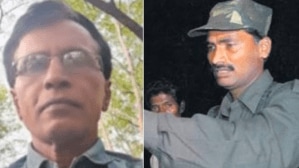Defence in a nuclear age
The phenomenal destructive power of nuclear weapons makes them qualitatively different from conventional weaponry. They must, therefore, be ...

The phenomenal destructive power of nuclear weapons makes them qualitatively different from conventional weaponry. They must, therefore, be approached from a different perspective. Indian political leaders have, generally speaking, stayed away from trying to understand military operations.
But this is a luxury that cannot be extended to nuclear weapons because they — unlike conventional military power and operations which remain the domain of professional military men — concern the country as a whole. What is even more important is that nuclear strategy must be fully understood by a large segment of the political, military and administrative elite of the country so that, if and when the need to employ them comes, there would be clarity in the minds of the decision makers, since any mistake would be catastrophic.
By announcing the official doctrine, the country is now committed to nuclear weapons for defence only and only against nuclear weapon threat — except in case of large scale attack with other weapons of mass destruction.
The government has done well to announce the official doctrine for the deployment of nuclear weapons. Prime Minister Vajpayee, in continuation with policy pronouncements of earlier leaders, had committed to Parliament that India would not to be the first to use nuclear weapons.
The draft nuclear doctrine, prepared by the first National Security Board, had been released to the public in August 1999 to encourage debate in the country with the goal of expanding understanding of the key principles involved.
That this served the purpose is borne out by the fact that it had led even some cabinet members to reportedly describe the draft doctrine as academic! The formal announcement by the government should close all speculation on this count. It must also be remembered that a doctrine is not necessarily a policy statement but an articulation of the principles governing that policy.
The announcement on the national command authority does not bring any surprises. As world’s largest practising democracy, it is but natural that the ultimate authority must vest in the political executive represented by the prime minister.
After all, we are not faced with the situation of Pakistan where the nuclear button is supposed to be under the control of the elected prime minister but it is the army chief that controls everything, including nuclear weapons. It is good that the government has not given out any details of the chain of command.
Countries adopting a first-use strategy do publicise their command chain to enhance credibility of their posture, but for India, or China, which have adopted a no-first-use strategy, projecting the details of the chain of authority could invite hostile action to decapitate the command-and-control system in the hope of stopping a retaliatory strike for punitive action.






- 01
- 02
- 03
- 04
- 05

























